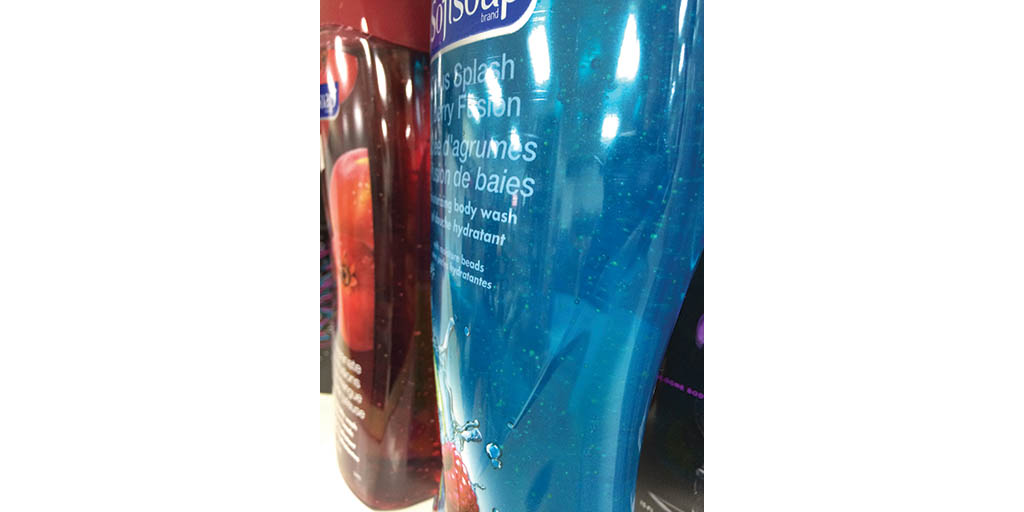Microbeads: A fast growing pollutant soon to be banned
 CREDIT: MITCHELL VOLLMER
CREDIT: MITCHELL VOLLMERThe federal government declared a ban of plastic microbeads in effect July 2018.
If you are among the large amount of people who participate in washing their hands, brushing their teeth, using exfoliating creams or shampooing and conditioning their hair, chances are that you have at some point come into contact with a microbead.If you are among the large amount of people who participate in washing their hands, brushing their teeth, using exfoliating creams or shampooing and conditioning their hair, chances are that you have at some point come into contact with a microbead.
Microbeads are manufactured solid plastic particles often made from polyethylene and other petrochemical plastics and are used in many different personal hygienic products.
Sizing in between one to five millimeters, these small pieces of plastic often go unnoticed in your toothpaste and shampoos and were originally thought to dissolve when used with water.
However, these small pieces of plastic are being washed down drains and fed directly into our lakes and rivers.
“Microbeads are really small plastic beads, little things put in products as exfoliates essentially, or as the cleaning particles in toothpaste,” Amanda Whittingham, the sustainability co-ordinator for the facilities operations and sustainability department at Fanshawe said.
A 150 milliliter bottle of the average facial cleaning gel will contain up too 330,000 microbeads, all of which, if squeezed out, can be drained into the rivers and lakes.
The study of plastic microbeads and their impacts on wildlife began back in March 2015 by Environment Canada under the previous Conservative Government, but were only officially declared toxic in June 2016.
The largest concentration of toxic microbeads were found in the great lakes, Lake Erie being the most polluted.
Microbeads are too small to be picked up by water treatment scrubs, and due to their incredibly small size they also float, which makes them impossible for water treatment plants to have any effect.
“Because they’re so small our water treatments systems don’t catch them in the processing, so they make their way through the water treatment systems and to our lakes and rivers,” Whittingham said.
Since polyethylene plastics absorbs toxins and pesticides, the fish that eat them are themselves becoming toxic, which could ultimately work its way into a human health risk.
According to Whittingham, organisms that eat and digest these microbeads have the false feeling of being full and due to the complete lack of nutrients in these beads, these animals can starve to death.
“Once the beads make it to the water, due to the nature of the plastic they are able to absorb toxic chemicals that have been banned like polychlorinated biphenyl (PCBs) and dichlorodiphenyltrichloroethane (DDTs) that still exist because of how much they were used in the past,” Whittingham said.
The ban of these products hopes to preserve the environment, and reduce the amount of waste going into our fresh water lakes and rivers.
“A main part of the ban is going to focus on imports. Producers won’t be able to purchase microbeads from another country and they also won’t be able to create them in Canada,” Whittingham said.
Right now Canada imports 100,000 kilograms of microbeads per year and 10,000 kilograms are created in Canada per year.
There are 14 companies that make up the Canadian Cosmetic, Toiletry and Fragrance Association, who are the heaviest users and manufactures of microbeads in Canada. Out of the 14, five have already agreed to stop using microbeads in products. The other nine are expecting to do the same come 2018.
Effective July 1, 2018, the federal government declared it will ban the sale and import of toothpastes, shower gels and other personal hygiene products using microbeads in Canada.
Under the Canadian Environmental Protection Act, new regulations will prohibit the manufacture and import of items containing microbeads starting beginning of 2018, six months prior to the ban of all products.
Microbeads and other small plastics found in prescriptions drugs and health care products will be prohibited a year later on July 1, 2019.














